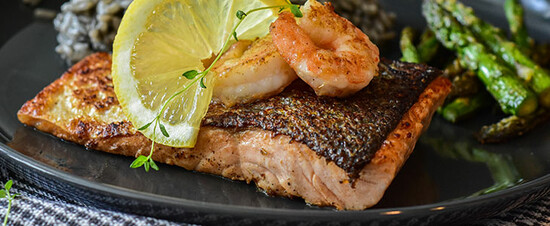New diets appear regularly. This is because there is no such thing as a one-size-fits-all method to living a healthy lifestyle. Individual needs personality should be taken into consideration when creating an effective diet plan. With this in mind, a vegetarian diet may be more beneficial to you than a carnivorous one, and vice versa. What would you say, however, if you learn about a new vegetarian diet that focuses on the best aspects of a vegetarian diet without excluding the eating of fish and seafood? The pescetarian (or pescatarian) diet. You can find out more about it in the following paragraphs.
What is the pescetarian diet and what are its principles?
The pescetarian diet is essentially a vegetarian diet that incorporates fish and seafood. The word "piscis" comes from the Latin word "piscis," which literally means "fish." "Pesco-vegetarians" or "pescetarians" are people who follow this diet. There are no hard and fast standards for deciding whether you are a vegetarian or a pescetarian other than seafood consumption. There are no rules on how often you have to eat fish to be considered a pescetarian. This means you may have a vegetarian diet with only a small amount of seafood on occasion, or you can incorporate these items in every meal.
You consume fish, legumes, grains, and oleaginous fruits, as well as eggs and dairy products, to meet your protein requirements. The pescetarian diet helps you to eat a well-balanced diet that includes all of the essential nutrients. It also allows you to adapt a vegetarian diet by incorporating lean protein and omega-3 fatty acids (found in fish and shellfish) into vegetable and fruit meals. This diet is nutrient-dense, high in fibre, and low in calories, all of which may aid weight reduction.
Because fish is a key protein source in both dietary patterns, the pescetarian diet is sometimes likened to the Mediterranean diet. They also place a premium on healthful diets like lean meats and veggies. This is why a pescetarian diet is classed as semi-vegetarian: plant items are the primary source of nutrition, although animal products are occasionally incorporated.
Advantages of a pescetarian diet
One of the many advantages of a pescetarian diet is the availability of omega-3 fatty acids, which helps to prevent inflammation. Fatty fish, particularly salmon, mackerel, herring, and fresh tone, contain them. In general, the pescetarian diet lowers harmful cholesterol and so improves heart health. This manner of eating has been proven in studies to lower the chance of developing certain diseases including type 2 diabetes, high blood pressure, and obesity, all of which are risk factors for heart disease.
In addition, a 2016 study found that omega-3 fatty acids were linked to a decreased risk of fatal heart attacks. In comparison to meat-based diets, one study found that the pescetarian diet has a favourable effect on chronic illness and decreased mortality rates. In comparison to non-vegetarians, persons who followed this diet had lower blood cholesterol and blood pressure levels, as well as a lower risk of diabetes and metabolic syndrome.
What kinds of foods are permitted?
The pescetarian diet, unlike vegetarianism, is not rigorous and allows for experimentation with different foods. The following is a list of items that have been approved: fish, seafood, eggs, milk, cheese, tofu, fruits, vegetables, legumes, nuts and seeds, whole grain pasta, bread and brown rice and superfoods like quinoa and buckwheat.
Foods to stay away from
When following the pescetarian diet, the items mentioned below should be avoided as a general rule. You can, however, eat them just once in a while and in little quantities. These are: red meat, poultry, deli, butter/margarine, alcohol, and foods containing trans fats.
Are there any disadvantages or risks to your health?
The major downside of a pescetarian diet is that fish and shellfish can be more expensive than meat, particularly if you do not live near the ocean. Is it necessary to be concerned about pollution levels? Mercury, a contaminant that may be particularly hazardous to the nervous system, is found in variable concentrations in all fish.
Oily fish should be consumed up to four times a week, according to health organisations. Mercury can influence the neurological system of the fetus and cause developmental delays in newborns, thus pregnant and nursing women, as well as those trying to conceive, should limit their fish intake to two meals per week. Mercury levels are high in sharks, swordfish, and marlin. Therefore, you must be cautious with them.
To be healthy, a pescetarian diet must be balanced and diverse, just like any other diet. Due to a lack of red meat, iron intake may be insufficient. As a result, it's critical to consume iron-rich vegetables like spinach and broccoli, as well as low-sugar cereals (for breakfast) that are filled with vitamins and minerals. Some pescatarians don't eat eggs or dairy products, which means they're missing out on important minerals like calcium, phosphorus, vitamin B12, and zinc. If you're thinking of switching to a pescetarian diet, be sure the foods on your plate are healthy and balanced, and that you're getting all of the nutrients you need.


Comments
There are no comments yet. Login or Register and write an article comment